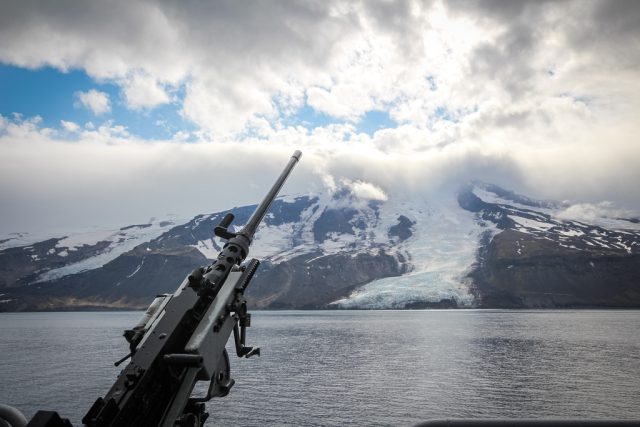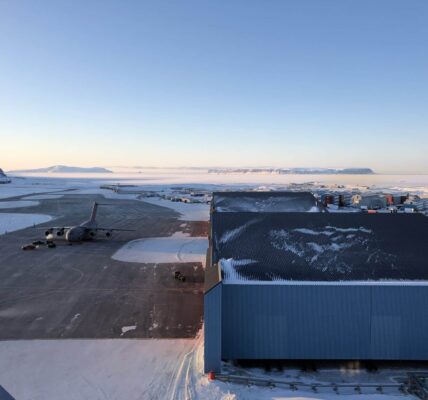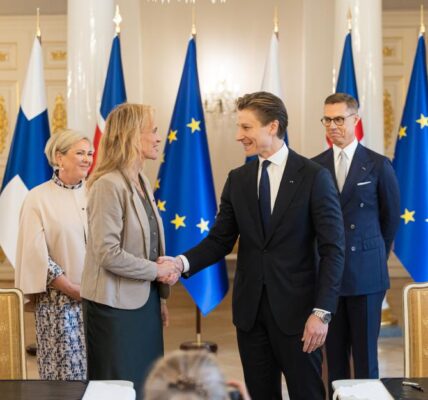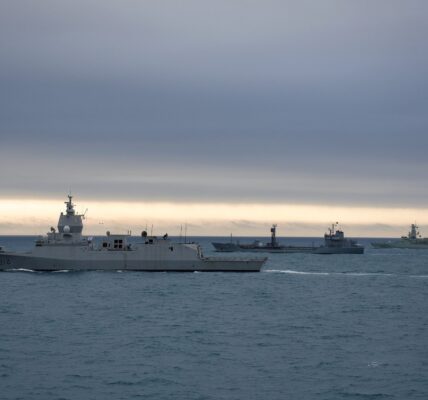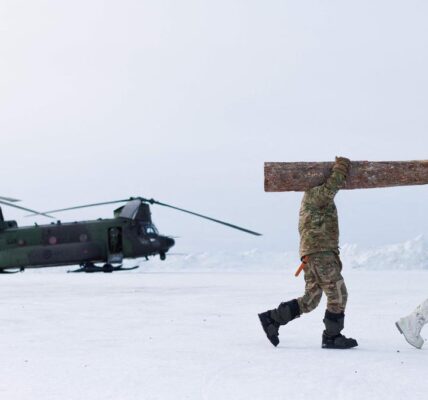All branches of the Norwegian military are boosting their presence, patrols and defense exercises in the country’s Arctic areas. This week Norway also formally established its first new brigade since the Cold War, to expand and enhance defense operations closer to the Russian border, but it’s unclear whether Norway will also send any peace-keeping troops to Ukraine.
As conversations about sending European forces into Ukraine pick up, Norway ceremoniously launched its new Finnmarksbrigaden. It will double the numbers of soldiers in Northern Norway, with around 5,000 soldiers based in Finnmark, roughly the same as those in Brigade Nord, based in the neighbouring county of Troms.
It’s the first brigade ever set up in Finnmark, which shares a border with Russia just east of Kirkenes. Both Norway and NATO earlier made a point of not having much military presence or exercises in Finnmark, so as not to provoke Russia, but all that changed after Russia invaded Ukraine in early 2022. Norway and Russia’s other neighbours have been on guard ever since.
Major General Lars Lervik, chief of the Norwegian army, notes how Russia has expressed “ambitions” about increasing its military presence and capacity along its borders to both Norway and Finland. “So this (the new brigade) is about positioning ourselves and hindering (Russian forces) from getting any ideas about testing themselves,” Lervik told newspaper Aftenposten after the brigade was formally established earlier this week.
He doesn’t foresee an invasion of Norway, but expects more hybrid threats. “It’s important for us to be ready around the clock, all week long, all year. Land-based troops can contribute to that,” he said, adding that the new brigade with bases at both Porsangmoen east of Alta and much farther east at Høybuktmoen (just outside Kirkenes in Sør-Varanger) will cooperate closely with police and other local leaders.

The region that encompasses the northern areas of Norway, Sweden and Finland is called Nordkalotten, and with both Sweden and Finland now members of NATO, it’s now an important strategic part of the defense alliance. All three Nordic countries have been working closely together and coordinating efforts, with more and bigger military exercises and more air defense.
Norway’s military patrol of the country’s border to Russia will continue, with expanded troops based in both Sør-Varanger and Porsangmoen and other functions in Alta and “other places,” Lervik said. “We working to assemble artillery, tanks, air defense systems and drones.” He noted that the brigade now established is functional but has deficiences. Plans call for acquisition of more material, personnel and instructors.
The long-term plan for the Finnmark Brigade notes how the war in Ukraine “has strengthened Russia’s need for strategic dominance in the Arctic.” It further projects that Russia’s “defense concept” calls for Norway and Norwegian-controlled areas to be lying fully or partly behind Russian lines of defense. That makes defense of all of Nordkalotten even more important, with Norway as an important entry point for allied forces and supplies to Finland and Sweden.

There’s no question Norway is rebuilding its defense forces and continuing to offer support to Ukraine. Prime Minister Jonas Gahr Støre said this week that his government hasn’t, however, taken a position on whether Norway will send military personnel to Ukraine as part of security guarantees during a ceasefire or truce between Ukraine and Russia. US President Donald Trump wants Europe to provide soldiers to secure any ceasefire and hinder new Russian attacks.
France, the UK, Germany and Poland have signalled willingness to provide such a coalition, with air support from the US, as has Sweden. “We haven’t addressed that yet,” Støre told Aftenposten when asked what Norway’s contribution might be.
“The most important thing we can do for security guarantees now is to make sure Ukraine can defend itself,” Støre said. “We will continue our support for that. We can contribute economically. We are a big supporter of Ukraine, but we won’t commit soldiers to an operation we don’t yet know the character of.”
